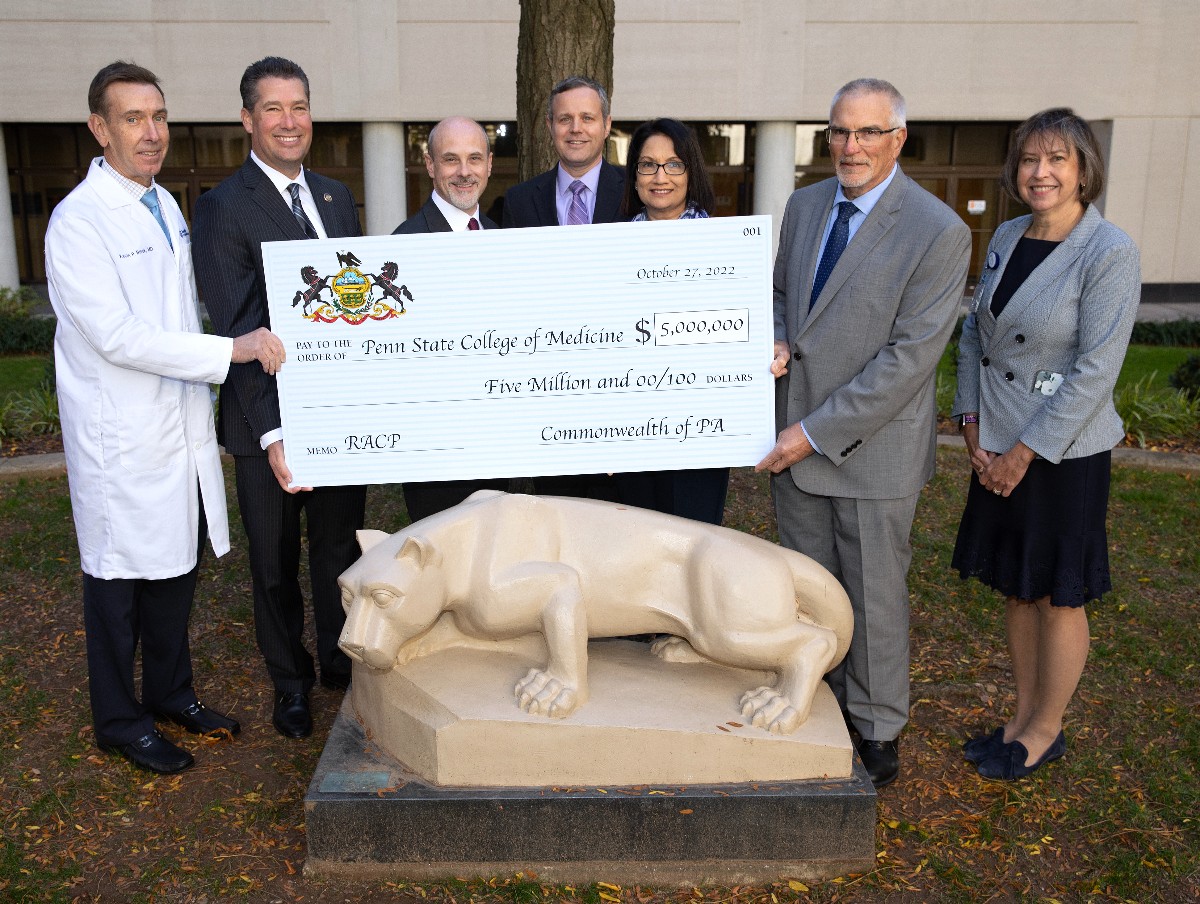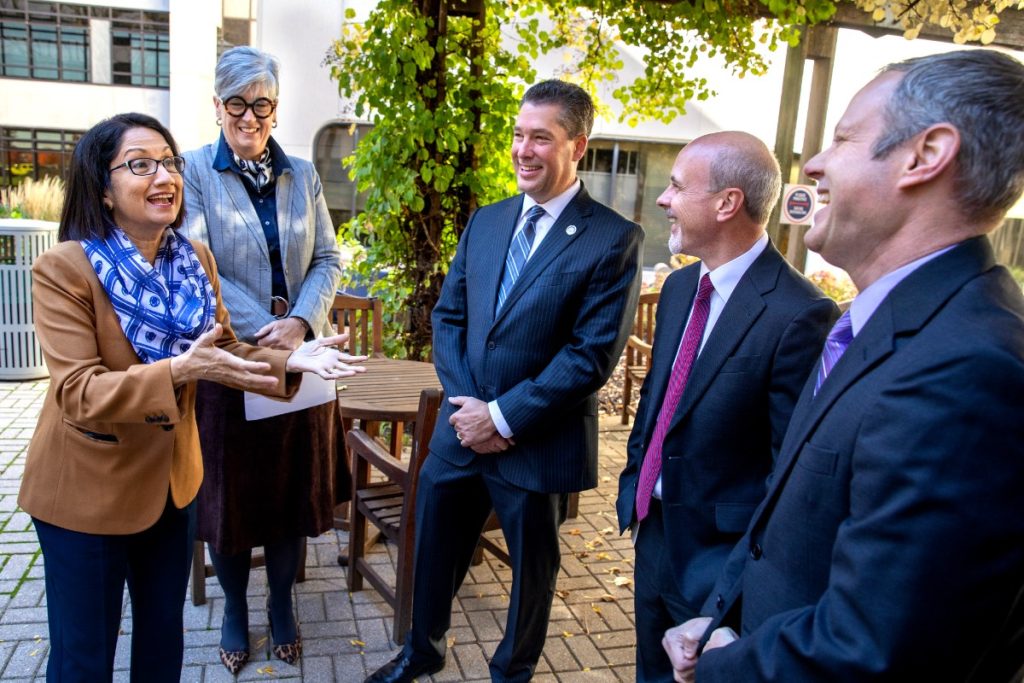Legislators present Penn State College of Medicine with $5M to expand research facilities

Funds support Penn State Board of Trustees‑approved $37.3 million project to modernize comparative medicine facilities
Penn State College of Medicine leadership accepted $5 million from Pennsylvania House Rep. Tom Mehaffie, a representative from Sen. John DiSanto’s staff and a representative from House Speaker Bryan Cutler’s office on Oct. 27. The money, secured with approval from Gov. Tom Wolf, will support a $37.3 million expansion of the College of Medicine’s comparative medicine facilities, a project previously approved by Penn State’s Board of Trustees.
The funds received are part of the Pennsylvania Office of the Budget’s Redevelopment Assistance Capital Program, a grant program supporting projects that will stimulate economic growth in Pennsylvania.
“These funds will ensure that Penn State College of Medicine remains competitive with its peer institutions by increasing the versatility and longevity of our facilities,” said Dr. Kevin Black, interim dean, Penn State College of Medicine. “We are grateful for this support, which will help our innovative scientists and dedicated research staff continue to develop next-generation therapeutics and medical devices to improve the health of Pennsylvanians for generations to come.”
For the past two years, the College of Medicine has been the top externally funded college in research funding at Penn State. The comparative medicine facilities, where model organisms are used to study cancer, aging, infectious diseases, substance use disorders and other health conditions, enable about $70 million in research funded by a mix of federal, association and industry programs. The proposed renovation and expansion plan will modernize these research spaces and improve both adult and pediatric cancer research capacity, in addition to supporting a variety of research on causes of and treatments for other medical conditions.

Starting second from left: Sheilah Borne, vice president for government relations at Penn State Health and associate vice president of government health relations at Penn State; State Representative Tom Mehaffie; Jake Smeltz, chief of staff for the office of Speaker Bryan Cutler, PA House of Representatives and Chuck Erdman, chief of staff for State Senator John DiSanto, share a laugh with Penn State President Neeli Bendapudi, before the presentation of a commemorative check signifying funds that will be used to expand the College of Medicine’s comparative medicine facilities.
“Support from the commonwealth and the Penn State Board of Trustees support for this initiative recognizes the College of Medicine’s continued growth as the top destination for biomedical and health sciences research in the region,” said Ronald Wilson, professor and chair of the Department of Comparative Medicine. “This project will provide our faculty, staff and students with an enhanced ability to improve human health through research with state-of-the-art, modern facilities.”
The College of Medicine also secured $12.2 million to support this project from Four Diamonds to grow pediatric cancer research. The project is expected to begin this fall and end by mid-2024, utilizing plans developed by HDR Inc. of Lawrenceville, N.J.
The project includes the renovation of approximately 11,000 square feet of existing research space and the addition of 18,700 square feet of new space. The project will modernize imaging facilities and also establish the first germ-free research facility on the college’s Hershey campus, which is critical to supporting the college’s microbiome research initiative. In addition, the project will increase the college’s capacity to develop implantable devices and to become a leader in translational research as outlined in the college’s strategic plan.
If you're having trouble accessing this content, or would like it in another format, please email the Penn State College of Medicine web department.
